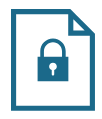CyberAdvises editors independently select and review products. When you purchase through affiliate links on our site, we may earn a commission, which supports our product testing efforts.
What Is a Password Manager?

A password manager is a digital tool designed to securely store, generate, and manage passwords for your online accounts. Instead of remembering dozens (or even hundreds) of unique passwords, a password manager keeps them organized in one secure, encrypted vault, accessible with a single master password. This tool has become essential for improving online security and simplifying your digital life.
Beyond storing passwords, a password manager helps you avoid the common risks associated with weak or reused passwords. By generating strong, unique passwords for each account, it ensures that your credentials are far less vulnerable to breaches or hacking attempts. The encrypted vault acts as a highly secure storage system, protecting your data even in the unlikely event of a breach.
How Does a Password Manager Work?
Encrypted Storage: Password managers store credentials in an encrypted vault using strong encryption like AES-256. This ensures your data is safe from unauthorized access, even in the event of a data breach. Only your master password can decrypt this vault, providing ultimate security.
Master Password Access: Your master password is the single key to unlock your password manager. It’s critical to choose a strong, unique master password, as it provides access to all your stored credentials. Many managers also offer two-factor authentication (2FA) to further secure this access.
Autofill for Convenience: Password managers integrate with browsers and apps to automatically fill in usernames and passwords, eliminating the need to remember or type them manually. This not only saves time but also helps avoid phishing attempts by only autofilling credentials on legitimate websites.
Password Generation: Built-in password generators create long, complex passwords with a mix of letters, numbers, and symbols. This ensures your accounts are protected by strong passwords that are nearly impossible for hackers to guess or brute-force.
Sync Across Devices: Modern password managers securely sync your encrypted vault across all devices—computers, smartphones, and tablets—using cloud storage. The data is encrypted locally before being uploaded, ensuring only you can decrypt it, even on multiple devices.
Backup and Recovery: Password managers often include backup options, ensuring your data is never lost. If you forget your master password, some services offer recovery keys or emergency access features to regain control of your vault.
Security Alerts: Many password managers actively monitor the security of your credentials, providing alerts if a password is weak, reused, or found in a known data breach. This helps you take proactive steps to improve your online security.
Secure Sharing: For shared accounts or team logins, password managers offer secure sharing options. You can grant access to specific credentials without revealing the password itself and control whether the recipient can view or edit the information.
Offline Access: Some password managers store encrypted vaults locally, allowing you to access your passwords without an internet connection. This is particularly useful for travelers or during network outages.
Additional Features: Many managers include advanced tools like private notes for storing sensitive information (e.g., PINs or recovery codes), two-factor authentication integration for added protection, and biometric authentication (like fingerprint or face recognition) for quick and secure access.
Why Use a Password Manager?
Reusing passwords across multiple accounts is a risky practice that leaves you vulnerable to cyberattacks. A password manager eliminates this risk by generating and storing unique, strong passwords for every account, ensuring each one is secure. Instead of juggling dozens of passwords, you only need to remember a single master password to access your encrypted vault, making your digital life both safer and more convenient.
Password managers also protect you from phishing attempts by recognizing legitimate websites and only autofilling credentials on trusted platforms. This feature reduces the likelihood of accidentally providing your login details to fake or malicious websites. Additionally, with cloud-based options, password managers allow seamless cross-device access, enabling you to securely retrieve your credentials on your phone, tablet, or computer anytime you need them. This combination of security, convenience, and accessibility makes a password manager an essential tool in today’s digital world.
Types of Password Managers

- Cloud-Based Password Managers:
- Store your encrypted vault on the cloud, allowing access across multiple devices.
- Examples: LastPass, Dashlane, 1Password.
- Offline Password Managers:
- Store your password vault locally on your device, avoiding cloud-based risks.
- Example: KeePass.
- Built-In Password Managers:
- Integrated directly into browsers like Chrome, Safari, or Edge.
- Convenient but often lack advanced security features found in dedicated tools.
Key Features to Look For in a Password Manager
- End-to-End Encryption: Ensures that only you can access your passwords.
- Two-Factor Authentication (2FA): Adds an extra layer of security to protect your vault.
- Password Sharing: Allows you to securely share passwords with trusted individuals.
- Password Health Reports: Analyzes your passwords and suggests improvements, such as replacing weak or reused passwords.
- Dark Web Monitoring: Alerts you if your credentials appear in data breaches.
Who Should Use a Password Manager?
A password manager is a valuable tool for virtually everyone, offering benefits that go far beyond convenience. Whether you’re an individual juggling personal accounts or a business safeguarding sensitive data, a password manager can simplify and strengthen your online security.
For those who spend a significant amount of time online, such as avid social media users or frequent shoppers, a password manager ensures that dozens of accounts across various platforms are protected with unique, strong passwords. Remote workers, who often access work-related accounts and sensitive data from multiple devices, benefit greatly from the secure and centralized management that a password manager provides.
Families, too, can find value in using a password manager. It offers an easy and secure way to share passwords for streaming services, online shopping accounts, or other subscriptions, eliminating the need for post-it notes or unsecured text messages. For businesses, a password manager is indispensable for managing team accounts, enabling secure sharing of shared credentials, and maintaining centralized control over sensitive information.
In every scenario, a password manager not only enhances security but also simplifies life by reducing the hassle of managing multiple passwords. It’s an essential tool for anyone navigating today’s digital landscape.
Are Password Managers Safe?
Yes, password managers are generally very secure when used correctly. They rely on advanced encryption algorithms, such as AES-256, to safeguard your data, ensuring that only you can access your stored passwords. Additionally, many password managers support multi-factor authentication (2FA), which adds an extra layer of protection by requiring a second verification step, such as a code sent to your phone or biometric authentication. This combination of encryption and layered security makes password managers a highly reliable tool for protecting your credentials.
However, the security of a password manager also depends on how you use it. Choosing a reputable provider is crucial, as established password managers are more likely to have robust security measures, regular updates, and strong user support. Equally important is creating a strong, unique master password to ensure that your encrypted vault remains inaccessible to unauthorized users.
Regular updates are another key aspect of maintaining security. Password manager providers frequently release updates to patch vulnerabilities and improve functionality. It’s essential to keep your password manager software up-to-date to ensure you benefit from the latest security enhancements. Furthermore, be sure to follow any advisories or recommendations provided by the password manager vendor. These might include warnings about potential security threats, guidance on creating strong passwords, or advice on using additional features like dark web monitoring.
By combining these practices—using a strong master password, enabling 2FA, regularly updating the software, and adhering to the provider’s security recommendations—you can maximize the security of your password manager and confidently protect your digital life.
Popular Password Managers
The password manager market offers a variety of trusted providers, each catering to different security needs. Providers like RoboForm, Proton Pass, NordPass, and Dashlane have become popular choices for their ability to combine user-friendly interfaces with advanced security features. These tools offer features such as password generation, secure storage, and cross-platform syncing, ensuring your credentials are protected and easily accessible. Whether you’re looking for simplicity, privacy, or comprehensive functionality, these providers have you covered.
- One-Click Logins and Autofill: RoboForm simplifies online navigation with its effortless one-click logins and form-filling capabilities, saving time and reducing hassle.
- Affordable and Flexible Plans: With competitive pricing for both Premium and Family plans, RoboForm provides robust features like unlimited syncing and secure backups at a budget-friendly cost.
- Comprehensive Security Features: End-to-end encryption, emergency access, and passkey support ensure top-tier protection for your digital credentials.
- Zero-Knowledge Architecture: Ensures that only you have access to your data, with no possibility for Proton or third parties to view your passwords.
- Integration with Proton Ecosystem: Works seamlessly alongside ProtonMail, ProtonVPN, and other Proton services for a unified privacy-first experience.
- Privacy-Focused Design: Built in Switzerland, benefiting from some of the world's strongest data privacy laws.
- Strong security and simplicity: NordPass provides end-to-end encryption and an intuitive interface, making it easy to use without compromising security.
- Breach monitoring and password health tools: Built-in features alert you to data breaches and help identify weak or reused passwords.
- Multi-platform support: Access your passwords seamlessly across Windows, macOS, Linux, Android, iOS, and popular browsers.
- End-to-End Encrypted Password Manager – pCloud Pass ensures that all stored passwords are encrypted on the user’s device before being uploaded, following a zero-knowledge security model, meaning only the user can access their credentials.
- Secure Password Sharing and Autofill – Users can safely share encrypted passwords with trusted contacts and use browser extensions for automatic login filling, improving both security and convenience.
- Seamless Cross-Platform Access – Available on Windows, macOS, iOS, and Android, pCloud Pass synchronizes passwords securely across multiple devices, providing a convenient and unified password management experience.
Final Thoughts
A password manager is an invaluable tool for managing your online security. By storing your credentials securely, generating strong passwords, and streamlining your login process, it provides peace of mind and protects you from cyber threats. In a world where data breaches are common, a password manager is no longer just a convenience—it’s a necessity.
With so many online accounts requiring unique and complex passwords, relying on memory or insecure storage methods like notebooks or browser autofill can leave you vulnerable. A password manager encrypts and stores all your credentials in a secure vault, accessible only with a single master password or biometric authentication. This eliminates the need to reuse weak passwords, which are a common target for cybercriminals using credential-stuffing attacks.
Beyond storage, many password managers offer additional features such as automatic form filling, secure password sharing, and dark web monitoring to alert you if your credentials have been leaked. Some even provide end-to-end encryption and zero-knowledge architecture, ensuring that even the service provider cannot access your stored data.
Whether you’re an individual looking to protect personal accounts or a business securing employee logins, a password manager simplifies security without sacrificing convenience. By taking control of your credentials with a trusted password manager, you significantly reduce the risk of hacking, phishing, and unauthorized access to your sensitive information.





